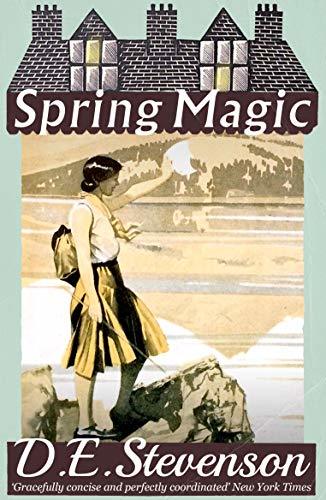What do you think?
Rate this book


Frances was free. She had enough money for her holiday, and when it was over she would find useful work. Her plans were vague, but she would have plenty of time to think things out when she got to Cairn. One thing only was certain—she was never going back to prison again.
Young Frances Field arrives in a scenic coastal village in Scotland, having escaped her dreary life as an orphan treated as little more than a servant by an uncle and aunt. Once there, she encounters an array of eccentric locals, the occasional roar of enemy planes overhead, and three army wives—Elise, Tommy, and Tillie—who become fast friends. Elise warns Frances of the discomforts of military life, but she’s inclined to disregard the advice when she meets the dashing and charming Captain Guy Tarlatan.
The ensuing tale, one of D.E. Stevenson’s most cheerful and satisfying, is complicated by a local laird with a shady reputation, a Colonel’s daughter who's a bit too cosy with Guy, a spring reputed to guarantee marriage within a year to those who drink from it, and a series of misunderstandings only finally resolved in the novel’s harrowing climax.
Spring Magic, first published in 1942, is here reprinted for the first time in more than three decades. Furrowed Middlebrow and Dean Street Press are also reprinting four more of Stevenson's best works—Smouldering Fire, Mrs. Tim Carries On, Mrs. Tim Gets a Job, and Mrs. Tim Flies Home. This new edition includes an introduction by Alexander McCall Smith.
“The author tells of what befell a young woman who, while on a seaside holiday in Scotland, enters the social life surrounding a battalion of troops and of how she found personal happiness. Lively and charming.” Sunday Mercury
“The cheeriest company . . . charmingly told” Sunday Times
281 pages, Kindle Edition
First published January 1, 1942